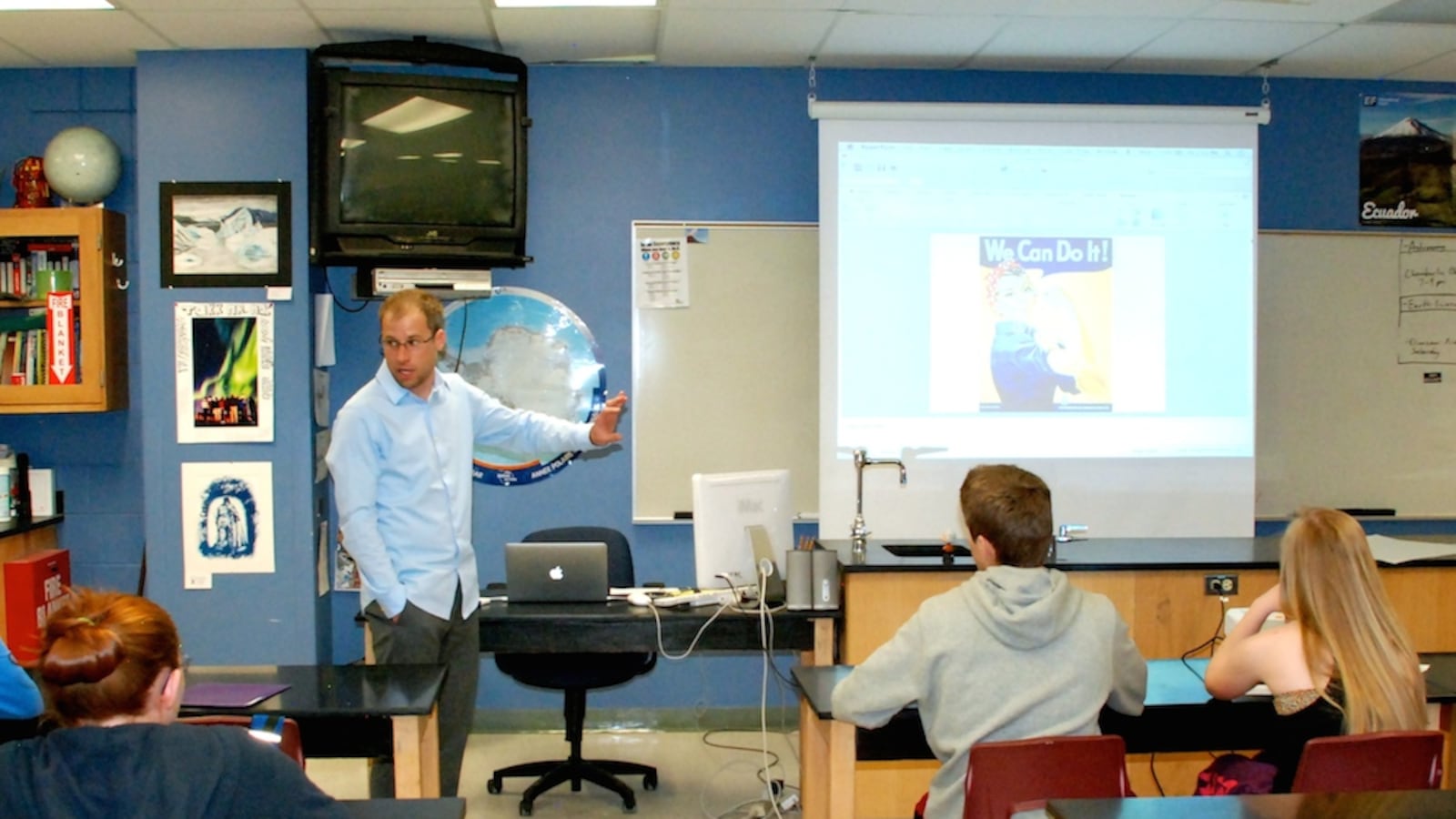The Douglas County School District may not provide its families vouchers to send their students to private schools, the Colorado Supreme Court ruled Monday morning.
In its decision, the state’s highest court effectively shut down the suburban school district’s choice program.
Douglas County school officials are expected to have a press conference this afternoon to discuss the ruling. It’s unclear whether the school district will attempt to appeal the decision to the U.S. Supreme Court. (See updated from press conference here.)
In the 4-3 opinion, written by Chief Justice Nancy E. Rice, the court said the Choice Scholarship Program, as the district called it, was unconstitutional because it sent taxpayer dollars to religious institutions.
“[T]he Colorado Constitution prohibits school districts from aiding religious schools,” the chief justice wrote in her conclusion. “The CSP has created financial partnerships between the District and religious schools and, in so doing, has facilitated students attending such schools. This constitutes aid to religious institutions as contemplated by section 7. Therefore, we hold that the CSP violates section 7.”
Section 7 refers to a portion of the state’s constitution that flatly prohibits any state aid to religious institutions.
In oral arguments last year, lawyers for the Douglas County School District argued that parents, not the school district, chose where to use the vouchers. In their opinion, the district did not endorse religious schools, but parents.
A majority of the court disagreed.
“It is true that the CSP does not only partner with religious schools; several Private School Partners are non-religious,” Rice wrote. “The fact remains, however, that the CSP awards public money to students who may then use that money to pay for a religious education. In so doing, the CSP aids religious institutions. Thus, even ignoring the pragmatic realities that scholarship recipients face—such as the trial court’s finding that ‘virtually all high school students’ can only use their scholarships to attend religious schools—the CSP violates the clear constitutional command of section 7.”
But in a dissenting opinion, Justice Allison Eid said the court’s interpretation of Section 7 went too far.
“This breathtakingly broad interpretation would invalidate not only the Choice Scholarship Program, but numerous other state programs that provide funds to students and their parents who in turn decide to use the funds to attend religious schools in Colorado,” Eid wrote. “The plurality’s interpretation barring indirect funding is so broad that it would invalidate the use of public funds to build roads, bridges, and sidewalks adjacent to such schools, as the schools, in the words of the plurality, ‘rely on’ state-paid infrastructure to operate their institutions.”
The ruling means that Colorado tax dollars will stay where they belong in public schools, said one of the plaintiffs in a statement emailed shortly after the decision was made public.
“The DCSD voucher program took taxpayer funds, intended for public education, and used that money to pay for private school education for a few select students,” said Cindy Barnard, President of Taxpayers for Public Education, one of the plaintiffs in the case. “The decision means that money set aside for public education in Colorado can only be used the way it was intended to be used — for the betterment of education in Colorado public schools.”
Education analyst Ben DeGrow at the Independence Institute, a libertarian think-tank and supporter of school choice, said he he believed the court came to the wrong conclusion.
“It’s a disappointment that the Colorado Supreme Court did not uphold opportunity and choice for families in Douglas County,” he said.
The voucher program was unanimously passed by the Douglas County school board in 2011. It would have allowed up to 500 Douglas County students, who live south of Denver, to use 75 percent of the district’s per-pupil funding – or $4,575 at the time – to attend a participating private school approved by the district.
Students would have been able to use those funds to attend private religious schools.
Thirty-four private schools applied to participate in the voucher program. The school district approved 23 of those schools.
Of the 23 schools, 14 were located outside Douglas County, one of the wealthiest counties in Colorado, and 16 taught religious doctrine.
The voucher program was modeled after other programs across the nation that have prevailed in court. It gave students the right to “receive a waiver from any required religious services at the [participating private school],” according to previous court documents filed by the district.
In 2004 the state Supreme Court halted a statewide voucher program that would have provided similar scholarships to low income families.
Capitol Editor Todd Engdahl contributed to this report.


